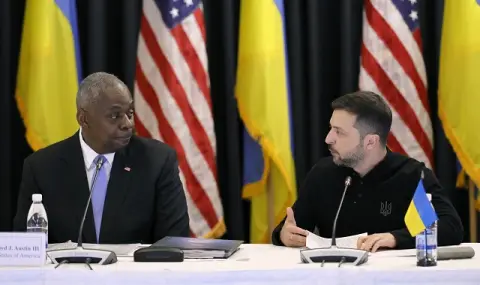U.S. and European officials said that Iran has supplied hundreds of short-range ballistic missiles to Russia to support its invasion of Ukraine, according to ISW - the Institute for the Study of War.
The transfer of Iranian ballistic missiles is part of the deepening strategic partnership between Iran and Russia.
US Defense Secretary Lloyd Austin said yesterday (6 September) that no single weapon would change the course of the war for Ukraine and that allowing Ukrainian forces to use US-provided weapons for long-range strikes ranges against Russian military targets, will not result in significant change.
Austin is correct, ISW comments, that no single weapon system will change the course of the war, but his comments do not address the issue of how weapon systems and accompanying rules of engagement affect Ukrainian capabilities and that changes in capabilities may alter the course of the wars.
Western military aid remains critical to Ukraine's ability to defend itself, and Austin's statement failed to acknowledge that long-range strikes are important to cutting off reinforcements from Russian rear areas.
Ukraine's Western partners pledged additional military aid to Ukraine during the Defense Contact Group at Ramstein Air Base in Germany on September 6. However, for now, a significant part of this aid will be provided at a later stage.
Russian forces continue to increasingly execute surrendering Ukrainian soldiers along the entire front line. This is probably due to the fact that Russian commanders partly condone the commission of such war crimes.
Russian officials tried during a meeting with the Director General of the International Atomic Energy Agency (IAEA) Rafael Mariano Grossi to convince him of their right to continue the long-standing efforts to legitimize the Russian occupation of the Zaporizhia Nuclear Power Plant (ZAEP ) and Zaporozhye region, while spreading false stories that there was a Ukrainian threat to the Kursk Nuclear Power Plant (KNPP). Their goal was to reduce Western support for the Ukrainian invasion of Kursk Oblast.
The Russian federal censor "Roskomnadzor" posted and immediately deleted a draft of a procedure to implement a recently passed law designed to remove the anonymity of Russian Telegram channels, possibly after receiving a signal of the position of the Russian ultranationalist community on Telegram.
The Kremlin has sent a signal that it intends to establish complete control over the Russian information space and that it will likely try again to de-anonymize Russian social media and Telegram channels, although it has emerged that for now the Russian federal censor " Roskomnadzor" has withdrawn its proposed regulations.
The Kremlin continues to engage the deputy head of the Russian presidential administration, Sergei Kiriyenko, in positions aimed at monitoring the extent of efforts aimed at shaping Russian identity and ideology.
Russia continues to develop mechanisms for using social media platforms to trigger specific activities, as it has been doing for several years in the Ukrainian information space, where it has honed these capabilities.
Russian forces have recently regained lost positions in Kursk Oblast.
For their part, Ukrainian forces recently regained lost ground near Pokrovsk, and Russian forces recently advanced near Toretsk.
ISW points out that confirmed Russian military deaths in Ukraine are a sign that more Russian volunteers have died in Ukraine than recruits and conscripts.
